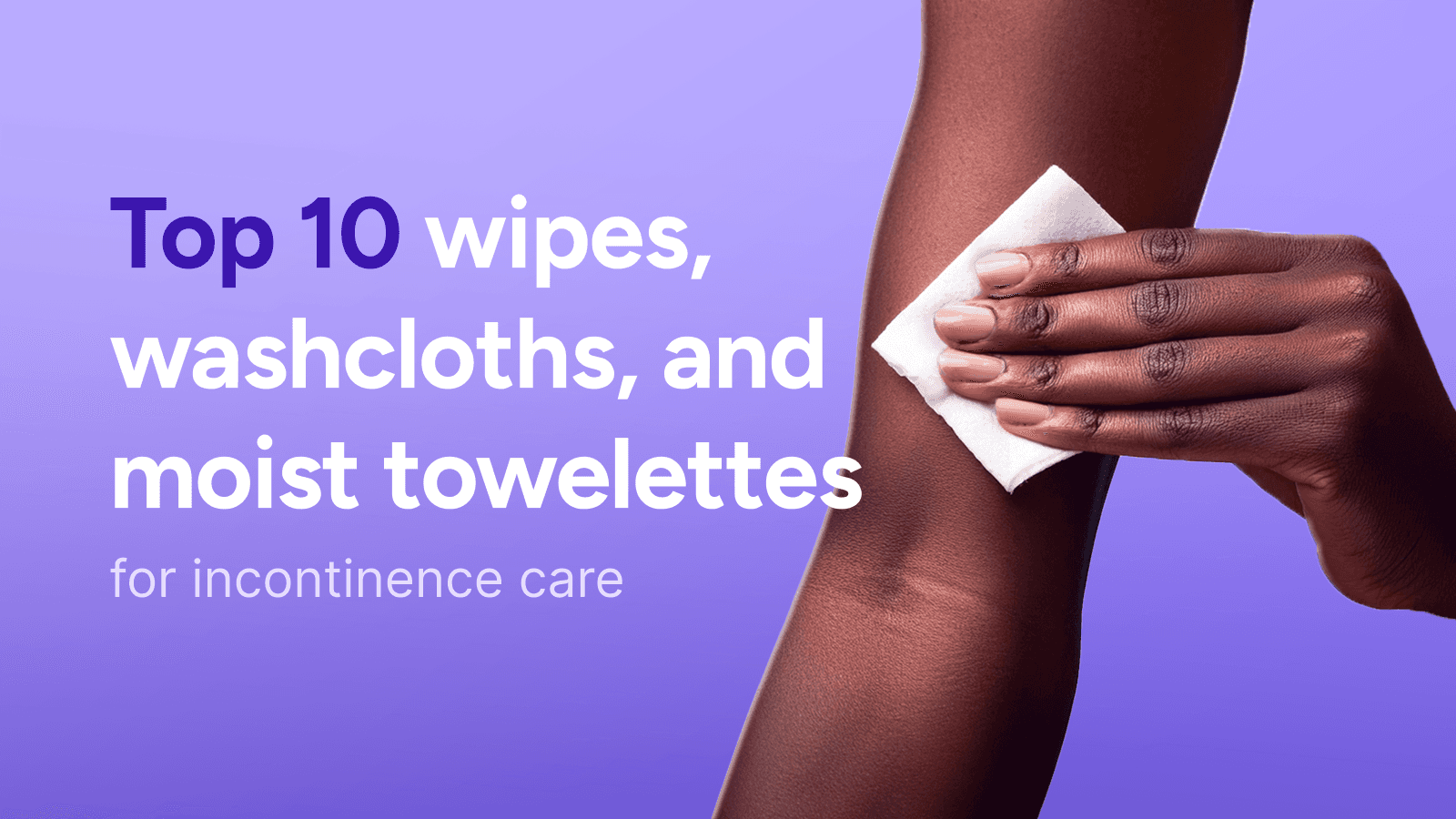How To Prevent UTIs: 5 Steps Caregivers Can Take

Written by Nate Birt on Mon Aug 04 2025.

Urinary tract infections (UTIs) are very common, but there are practical ways to reduce the risk of developing one. In this guide, you'll learn about the best products and steps you can take to help prevent UTIs in your loved one. Proactive care is one of the best ways to keep the people you love healthy.
Essential products for UTI prevention
1. Adult incontinence products
Keeping your loved one clean and dry is essential. Adult incontinence underwear and accessories that absorb moisture and allow airflow can help limit the growth of harmful bacteria.
2. Specialized cleansers and rash care
Products like perineal cleansers are designed to keep sensitive areas of the body clean. They reduce the risk of contamination from urine or feces and can moisturize the skin to prevent cracking, which can lead to infection.
3. Wipes and washcloths
Wipes, washcloths, and moist towelettes are ideal for thorough cleaning. The moisture in these products effectively removes unwanted particles from the skin, offering a level of support that toilet paper can't. Many also contain moisturizers to keep skin healthy.
5 key steps to prevent UTIs
Taking these proactive steps can significantly lower the risk of your loved one getting a UTI.
Step 1: Talk to their doctor about prevention
Many caregivers wonder how to prevent a UTI. During your loved one's next doctor's visit, ask about specific preventative measures you can take. If they have had a UTI before, discuss their risk factors and practical ways you can help. Consider bringing a notebook to jot down the doctor's tips and recommended resources.
Step 2: Establish good hygiene habits
Good hygiene is critical for preventing UTIs. It's important to help your loved one clean up after using the bathroom while also upholding their dignity and privacy. Encourage them to wipe from front to back to keep bacteria away from the urinary tract. You can help establish a routine that includes wiping with toilet paper, cleaning with a wipe, and using a cleanser to remove any remaining bacteria and refresh the skin.
Step 3: Assess their wardrobe
Trapped moisture can create an environment where bacteria thrive. Review your loved one's wardrobe, especially if they experience incontinence or need help with daily activities. Choosing shorts or pants that allow air to circulate can help keep the genital area dry and prevent the buildup of bacteria. If they use adult incontinence underwear, consider adding an incontinence pad for extra absorption. For those who need it, bowel pads can also help ensure waste is kept away from sensitive areas.
Step 4: Encourage them to drink more water
Drinking fluids regularly helps flush out harmful bacteria and dilutes urine, making it harder for bacteria to multiply. Find ways to encourage hydration, such as providing a water bottle or offering a glass of water with every meal. You can also try low- or no-sugar flavorings or juices that are pleasant to drink.
Step 5: Learn the symptoms of a UTI
Even with the best preventative care, UTIs can still happen. Be kind to yourself if this occurs. The key is to catch the infection early. Look out for potential symptoms so your loved one can get treatment quickly. If they can communicate, they may report pain while urinating or a sudden need to urinate more often. If they cannot communicate, look for behavioral changes like confusion, lethargy, or increased agitation.
Need more information?
You can learn more about how to prevent UTIs with the resources below. Also, Carewell’s Caregiving Specialists are here to help. Call us at (800) 696-CARE.
Other Articles You May Like

Top 10 Best Wipes, Washcloths, & Moist Towelettes for Incontinence Care 2025
Finding the right cleansing wipes is a key part of comfortably managing incontinence. We’ve put together our roundup of top-rated wipes, washcloths, and towelettes for incontinence care to help you select the best product for your needs.
Medically Reviewed by Kiera Powell, R.N.

Carewell’s Essential Checklist for Urinary Incontinence Care
Urinary incontinence affects more than 25 million Americans. To help, we created a free checklist download for urinary incontinence care.
Medically Reviewed by Kiera Powell, R.N.

Nate Birt is a healthcare writer with a journalism degree from University of Missouri. He lives with his wife and their four children on a small farm in Missouri.